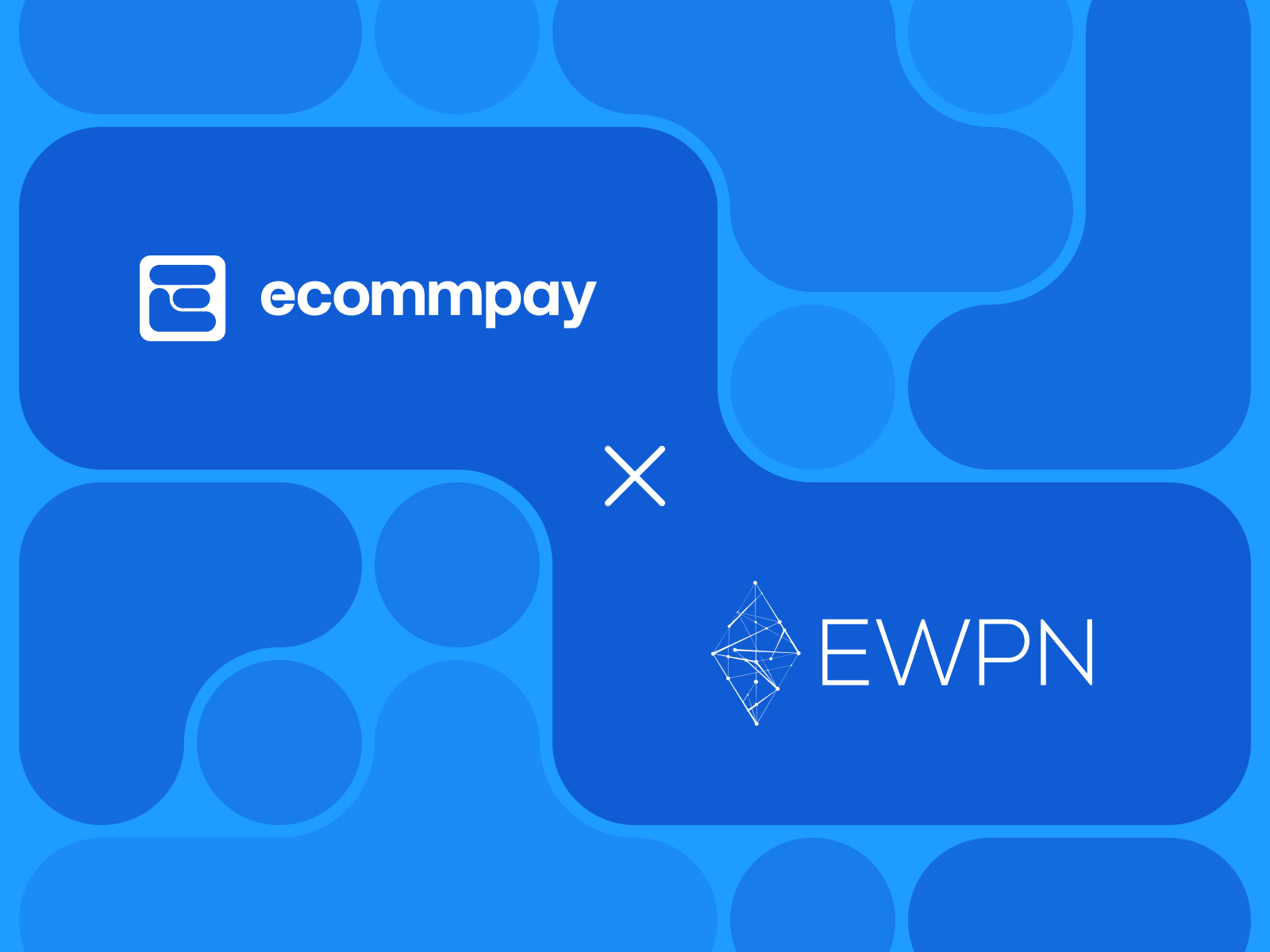Driving accessibility in FinTech: Key insights from our recent panel discussion at the European Women in Payments Network event.

On 16 October 2024, our Chief Marketing Officer, Miranda McLean, chaired a panel of industry leaders at EWPN’s London event to discuss accessibility in FinTech. Together, they delved into the need to provide accessibility, regulatory advice, business strategy, and community impact, emphasising why accessibility is a crucial aspect of long-term growth for FinTech companies.
Here are the key insights and actionable items that emerged from the discussion.
The importance of accessibility in FinTech
The panel emphasised that accessibility is not merely a regulatory obligation; it’s a vital component of a comprehensive business strategy that can drive growth and enhance user experience. With 100 million people in the EU having some form of disability—nearly 27% of the population—there's a significant opportunity for FinTech companies to tap into this market.
Meet the panellists
The panel featured notable leaders in the accessibility space:
- Charlene Overend: Head of the Global Purple Tuesday initiative, Charlene urged organisations to prioritise accessibility on their agendas, highlighting it as crucial for long-term success.
- Fabienne Malkinson (Revolut Business): After starting her career in sales, Fabienne became a champion for neurodiversity, establishing a hub to support individuals with diverse neurological conditions. Her personal journey with dyslexia and dyspraxia fueled her passion for creating inclusive spaces.
- Cressida Stephenson (Eden Chase Associates): As a disabled CEO and DEI educator, Cressida emphasised that true equity cannot be achieved without full accessibility. Her work focuses on helping organisations create environments that support all individuals.
- Mick McAteer (Financial Inclusion Centre): Mick campaigns for inclusive financial services that cater to all segments of society, ensuring that no one is left behind. He stressed the importance of understanding the dual challenges of poverty and market design that contribute to exclusion in financial services.
Key takeaways
- Inclusive design is essential: The panellists highlighted that adopting inclusive design principles is not only necessary for compliance with regulations like the European Accessibility Act but also beneficial for business. Charlene pointed out that designing for everyone leads to higher customer satisfaction and brand loyalty. Disabled consumers tend to be highly brand loyal when they find products that meet their needs. Ecommpay’s Website Accessibility Guide, created in partnership with the Digital Accessibility Centre (DAC), can help with this.
- The commercial advantage of accessibility: By focusing on accessibility, businesses can access the "purple pound"—a staggering £274 billion market in the UK and $13 trillion globally. This financial incentive can drive companies to create accessible platforms and services, ultimately attracting diverse talent and enhancing innovation. Engaging disabled and neurodivergent employees fosters a self-perpetuating cycle of creativity and understanding, leading to products designed for everyone.
- Diverse problem-solving approaches: Fabienne noted that individuals with neurodiversity often bring unique perspectives and creative problem-solving skills to the table. By incorporating diverse neurotypes into teams, companies can enhance innovation and productivity, benefiting not just the individuals involved but the entire organisation.
- Financial inclusion and responsibility: The panel emphasised the critical need for financial services that empower marginalised groups. Accessible financial products can drive economic growth and support underserved communities. However, with this opportunity comes the responsibility to ensure that offerings are genuinely inclusive.
- Navigating regulatory changes: With the upcoming Consumer Duty legislation set to come into effect in the UK in June 2025, panellists stressed the importance of understanding and preparing for its implications. This legislation will serve as an enforcement mechanism for equality provisions, requiring businesses to ensure their services are accessible and equitable for all users.
- The Disability Confidence Scheme: Christina introduced the Disability Confidence Scheme, a government initiative aimed at supporting businesses in becoming more inclusive. This voluntary program has three levels—Committed, Confident, and Leader—each requiring specific actions to demonstrate a commitment to disability inclusion. By participating in this scheme, companies can guarantee disabled applicants an interview if they meet the minimum job requirements, addressing discrimination in the recruitment process.
- Accountability and cultural change: The panel underscored that fostering a culture of accountability is crucial. Leaders should set accessibility objectives and measure outputs, ensuring that accessibility is a priority at all levels. Sharmi emphasised that creating an inclusive culture begins with reframing recruitment processes to consider neurodiversity and disability awareness.
Action items for moving forward
To drive the initiatives discussed, the panel identified several key action items:
- Invest in inclusive design: Companies should prioritise user-centric design processes that cater to all users, especially those with disabilities. This investment not only meets legislative requirements but also drives customer loyalty and revenue.
- Enhance financial inclusion: Develop targeted programs to support marginalised groups, ensuring they have access to necessary financial services.
- Strengthen regulatory compliance: Regularly review and update compliance strategies to align with evolving accessibility regulations. Charlene emphasised that FinTechs need to undertake audits of their products and services to identify areas of non-compliance and develop a roadmap for remediation by June 2025.
- Engage employees: Create platforms for employees, particularly those from marginalised backgrounds, to share their experiences and contribute to accessibility initiatives. Fabienne shared that creating a supportive community within Revolut has empowered many to unmask their experiences and contribute meaningfully.
- Implement training and awareness programs: Foster awareness around accessibility and neurodiversity through dedicated training for staff. Engaging existing disabled talent in decision-making processes can lead to better products and services.
- Leverage external expertise: Collaborate with organisations and consultants specialising in accessibility to enhance strategies and initiatives.
- Build a disability inclusion accessibility framework: This framework should consist of four phases: awareness, understanding, involvement, and engagement. Begin with assessing existing barriers, building skills within the organisation, involving disabled individuals in product development, and actively promoting accessibility features to customers.
Overcoming internal barriers
A significant point raised was the need for internal champions within organisations to advocate for accessibility. Many passionate individuals face hurdles when trying to secure investment for initiatives due to budget constraints or lack of executive buy-in. Panellists emphasised the importance of providing these champions with the tools to make a compelling business case. Having statistics, market research, and competitor analysis at hand can help articulate the financial opportunity presented by accessibility.
The path ahead
While the panel acknowledged the progress being made, they also recognised that significant work remains. Creating an inclusive culture is not a silver bullet; it requires ongoing effort and dedication. Initiatives like the Disability Confidence Scheme are a step in the right direction, providing guidance for reframing recruitment processes and enhancing disability awareness within organisations. By fostering open conversations about support and inclusivity, companies can cultivate an environment where all employees feel empowered to thrive.
Conclusion
The panel discussion made it clear that prioritising accessibility in FinTech is not just a moral obligation—it’s a pathway to unlocking significant commercial opportunities. By focusing on inclusive design, fostering financial inclusion, and adhering to regulatory compliance, companies can create a more inclusive financial landscape for everyone. The actionable steps outlined here provide a roadmap for organisations committed to enhancing accessibility in their services.
As we move forward, let’s work together to ensure that FinTech is accessible to all. With significant potential in this market, we must approach accessibility with both opportunity and responsibility in mind. Those who invest in accessibility will thrive; those who don’t may find themselves left behind.
As a key takeaway, panellists encouraged all organisations to sign up for Purple Tuesday on 12 November, 2024, a global celebration recognising the progress made in accessibility. Engaging with this initiative can catalyse internal conversations and set the stage for meaningful change. Remember, partial inclusion is still exclusion—we believe in full accessibility for all.
